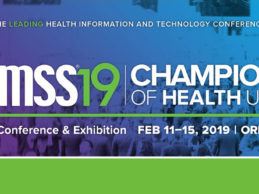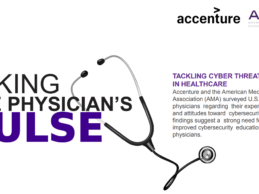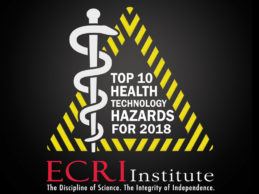Medical device usage is on the rise, and that reality potentially puts people at risk if those gadgets have security flaws. It's crucial for device manufacturers, industry regulators and health practitioners to work together to ensure safety are paramount as adoption rises.Internal health devices are particularly at risk, especially since patients and providers may not immediately notice issues. The people who use or prescribe them assume they'll work as expected and typically don't have ways to
Read More
Ransomware Attacks
Hackers in Healthcare: What Damage Could They Do With Your Medical Data?
Conversa Health’s Scott Anderson provides a brief take on the state of data security in healthcare.The wave that is big-data doesn’t appear to be cresting in healthcare anytime soon, and unfortunately, neither are the threats waged against it. Hijacking and hacking into personal health information (PHI) has become a growing trend that’s here to stay. So, the question remains: what should be done about it?The last couple of years have unveiled a fair share of data breaches in healthcare: in 2017,
Read More
HIMSS19 Day 2 Announcements & Summary
Accenture: Millenials & Gen Z Are Shifting to Virtual, Retail, Clinic, Digital CareMillennial and Gen Z consumers in the U.S. are rapidly adopting non-traditional care models, such as retail clinics, virtual and digital services, according to results of an Accenture survey of 2,000 consumers.Key findings of the survey study include:- When considering traditional in-person care, millennials (ages 22 to 38 in 2019) were two to three times more likely than baby boomers (ages 55 to 73) to be
Read More
Healthcare Cyber Hygiene: 5 Best Practices to Protect Patient Data
Hospital-acquired infections and data breaches may have vastly different causes, but they have one thing in common—they put healthcare organizations and patients at risk. The “pathogens” which cause data breaches originate both externally and internally—but practicing healthcare cyber hygiene can reduce or eliminate their “infection."Patient data has high value—to others. According to Verizon’s 2017 Data Breach Investigations Report, healthcare has the second highest number of breaches after
Read More
4 Leading Health IT Trends That Will Continue in 2018
Several notable trends from 2017 will continue to impact the health information technology (HIT) industry in the new year. Ransomware tops the list, particularly after this May’s WannaCry worldwide cyberattack, followed closely by increased awareness of electronic prescribing of controlled substances (EPCS) as an “upstream solution” to battling the nation’s mounting opioid abuse crisis. Beyond the ongoing development of these two leading trends, HIT experts are also asking two key questions as
Read More
Survey: 4 in 5 Physicians Experienced Cyberattacks In Their Clinical Practices
More than four in five U.S. physicians (83 percent) have experienced some form of a cybersecurity attack, according to new research released today by Accenture and the American Medical Association (AMA). The key findings reveal physicians see need for the healthcare industry to increase cybersecurity support for medical practices in their communities. More than half (55 percent) of the physicians were very or extremely concerned about future cyberattacks in their practice. In addition,
Read More
Ransomware Tops ECRI Institute’s 2018 Top 10 Health Technology Hazards List
Ransomware and other cybersecurity threats to healthcare delivery has topped ECRI Institute’s Top 10 Health Technology Hazards for 2018 list. Ransomeware are potential patient safety crises that can disrupt healthcare delivery operations, placing patients at risk. Ransomware attacks can lead to canceled procedures and altered workflows (e.g., reverting to paper records). They can also damage equipment and systems, expose sensitive data, and force closures of entire care units. Ultimately, they
Read More
Why It’s Time for Hospitals to Become Immune to Ransomware
Editor's Note: Greg Maudsley is a cyber security expert at Menlo Security, a Silicon Valley-based cyber security company that protects organizations from cyber attack by eliminating the threat of malware.Hospitals and other healthcare organizations (HCOs) are increasingly singled out by cyber criminals for ransomware and other attacks. Not only are patients’ sensitive records being targeted, but also – as the FBI warns – their intellectual property or credit card information. The
Read More
How can Health IT Improve Security and Restore Trust?
Editor's Note: John Smith is a Principal Solutions Architect at IT analytics company ExtraHop. Prior to joining ExtraHop, John was a Cloud Architect at both Philips and McKesson and was previously a Principal Architect at the Centers for Disease Control.Hardly a day goes by without news of a new cybersecurity threat or breach, and the healthcare industry is hit with more than its fair share. While unfortunate, it’s not hard to understand why. From personal health information (PHI) to insurance
Read More









